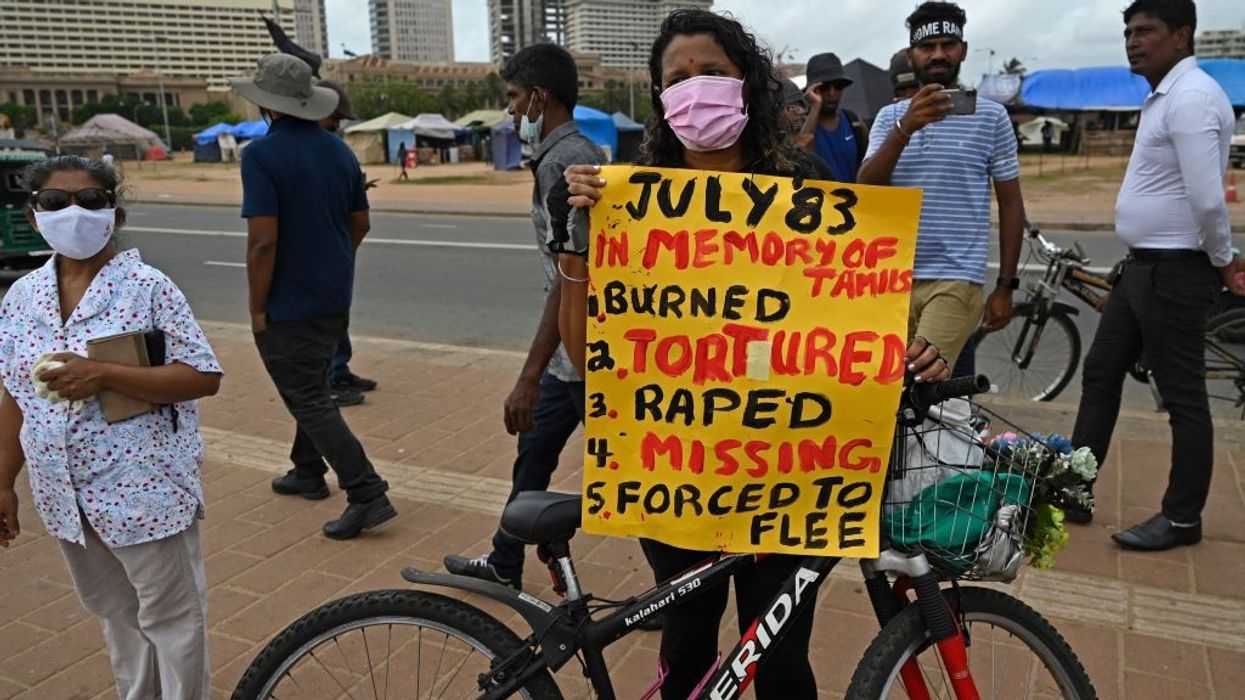FORTY years ago, mobs in Sri Lanka burned 13 people alive, part of a week-long pogrom that turbocharged simmering ethnic unrest into all-out civil war.
Known in Sri Lanka as 'black July', the brutal violence triggered a 26-year conflict that killed about 100,000 people and set development back by decades, ending only after the Tamil rebels fighting for autonomy were massacred in 2009.
The 1983 anti-Tamil mob attacks escalated on July 29, when Mohan Panneer Selvam was just eight years old.
A rampaging gang torched his home in the tea-growing central town of Hawa Eliya, burning 13 people inside, including his parents, relatives and their staff.
"My grandmother started to escape, they shot her and threw her body into the house," Panneer Selvam said, breaking down while recalling the events narrated to him by his older sister.
He and his younger brother were away at boarding school when the riots broke out, returning as orphans to the ruins of their burned home two months later.
His sister -- then a child of 10 -- was the sole survivor only because their mother "threw her out of the kitchen window," he said.
She was wounded and found "two or three days later" by police and sent to a camp for Tamils made homeless by the violence.
"My sister saw the burnt bodies -- they put the bodies in a municipal tractor (trailer)," he said. "They dumped them somewhere."
Ethnic tensions between the mainly Buddhist Sinhalese majority and the largely Hindu and Christian Tamil minority had long simmered, and worsened after ex-colonial ruler Britain quit in 1948.
The conflict erupted in July 1983, when a landmine ambush laid by Tamil rebels killed 13 Sinhalese soldiers, in the Tamil heartland of Jaffna.
The government flew the bodies to Colombo for a mass burial, but relatives demanded individual funerals and rioted.
The backlash degenerated into a week of violence targeting Tamils, with the worst of the violence on July 29, dubbed "Black Friday", when Panneer Selvam's family was killed.
According to the government, about 400 to 600 people died over the course of the massacres -- mostly Tamils. But minority groups say the true toll could be in the thousands.
"The events that happened... changed the course of history," said Tamil legislator M A Sumanthiran.
"We don't regard what happened in 1983 as a riot, because it was planned violence unleashed on the Tamil people in this country. It was a pogrom."
Some claim the army was actively involved or provided tacit support to the attacks in revenge for the loss of their 13 comrades, and several then-government officials were seen leading mobs.
No one has been prosecuted.
But some Sinhalese did protect Tamil neighbours.
Human Rights lawyer Nimalka Fernando, who is Sinhalese, sheltered Tamil and Muslim neighbours.
"Over 40 years, it has been a journey to grapple with waves of internally displaced people, waves of refugees in my own country," she said.
Sumanthiran said autonomy was the "political standard of the Tamil people", noting they had always voted for a federal system -- and had even demanded a separate state during elections in 1977.
"To quell that, to subdue that, violence was practised," he said. "So '83 was the height of that kind of strategy by the government".
Sumanthiran says about 1.3 million Tamils fled the country after the riots, many north to neighbouring India -- motivating their increasing interest in the conflict.
New Delhi pressed Colombo to seek peace by granting autonomy to the Tamils, and the Sinhalese leaders' policy "boomeranged" back in their faces, he added.
"While everything was on fire, the Indian government intervened," Sumanthiran said.
Of the estimated 100,000 killed in the war, the dead are split roughly equally between the security forces, Tamil fighters and Tamil civilians, with Sinhalese and Muslims also among the dead.
(AFP)





